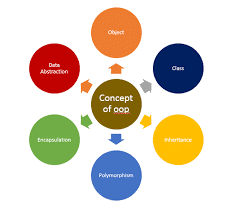Java is a high-level programming language that was designed to be simple and easy to write codes and computer applications with. Since its initiation into mainstream coding in 1991, Java has evolved into a popular programming language used across websites, web and mobile applications, and software. Thus, students studying computer science as a subject in school need to learn and understand critical Java programming concepts to become adept in this language.
However, writing Java programs isn’t easy, and beginners have a tough time writing extensive Java program codes. Thus, they find it easier to avail of online Java programming assignment help to write their Java assignments and homework. However, if you want to become a successful Java programmer in the future and find lucrative employment, then you should try to write your Java programs yourself.
That said, I shall discuss some critical Java concepts that you should study to make your task of writing assignments easier. Read on to find out more.
JavaScript Certification in Frankfurt
Critical Java Concepts to Study in School
Java is a programming language that deals with several concepts that students need to learn. These concepts aim to make learning Java simple and make it easier for students to write Java programs and create working Java applications. Thus, with no further ado, let’s check out the Java programming concepts you should be learning in school. Avail this – do my online class
Object-oriented programming language
Java is an object-oriented programming language. This type of programming language uses objects and classes to design programs. It helps to simplify the process of software maintenance and development, providing different concepts. To understand Java completely, you should know how object-oriented programming works. You need to understand objects, classes, and other related terms and develop an idea about object-oriented programming.
String handling
Strings are a sequence of characters and are widely used in Java programming. They are treated as objects and used to write native Java codes that can be run easily. You get access to all tools to work with strings in the Java programming platform. You can also use the string class for creating and manipulating strings. A common example of a string in Java can be:
String greet = “hello globe!”;
Thus, whenever Java encounters the string in your code, it will display the text as a string object. Read this- Visual Analytics: Things You Shouldn’t Miss Out
Collections framework
The Java platform has a collections framework that students need to work with when writing their Java programs. A collection means a group of objects in Java, and a collection framework is a united architecture that is used for manipulating and representing collections. This enables collections to be manipulated irrespective of their implementation details. The collection framework further consists of several aspects like:
- Collections interfaces
- Legacy implementations
- Special purpose implementations
- Wrapper implementations
- Algorithms
- Array utilities
- Infrastructure
- Convenience implementations
Exception handling
Exception handling in Java is a mechanism to handle the different runtime errors that can pop up when executing your program codes. This ensures that the normal flow of the Java application is maintained. Some types of errors that exception handling can take care of are ClassNotFoundException, SQLException, IOException, and RemoteException. The primary advantage of it is that it allows the Java program to be executed without any interruptions.
Final thoughts
I hope this blog helped you understand the top critical Java concepts you need to study in class. However, if you want to become a pro Java programmer, you will need to practice writing Java programs independently.
Author Bio
Alley John is a professor of Computer Science at a reputed university in the US. He is also associated with MyAssignmenthelp.com and loves providing Java programming assignment help to students in dire need of it.



